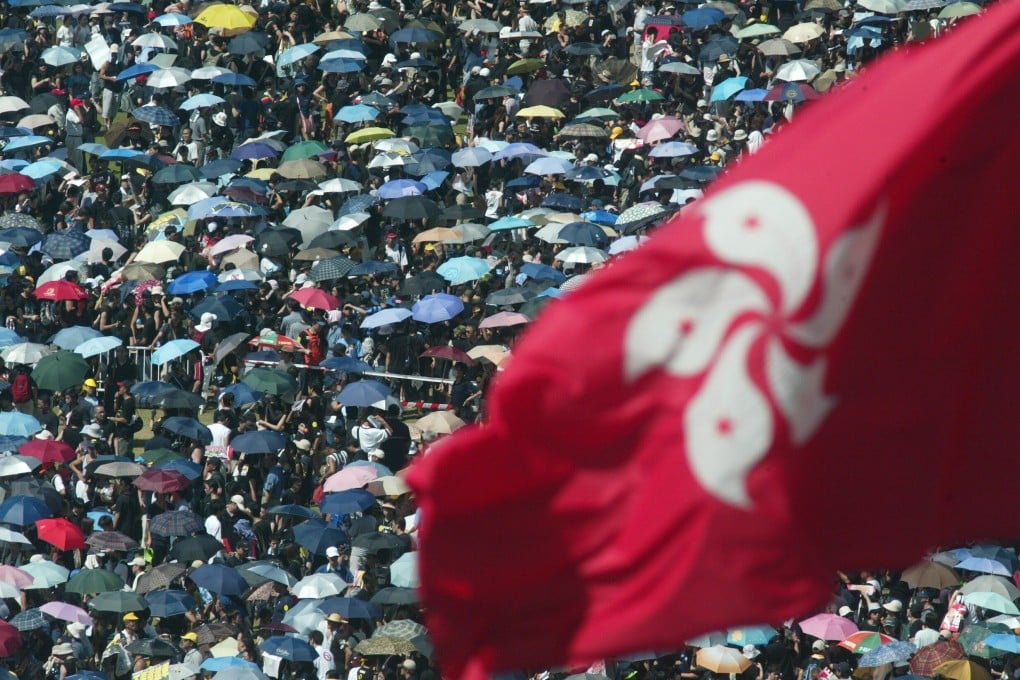From fledgling alliance to protest powerhouse: a tumultuous 19 years for Hong Kong’s Civil Human Rights Front
- When front was founded back in 2002, its members assumed it would just be temporary and disband once it had served its purpose
- But over the 19 years leading up to announcement of its dissolution on Sunday, it became one of city’s most important outlets for public dissent

The front’s abrupt end was confirmed in a statement on Sunday, though its fate was sealed the previous Friday when its member groups endorsed a resolution to disband.
Announcing the decision amid a looming police crackdown, the group said in a statement it had originally hoped to continue its fight, but its secretariat had failed to keep up its operations after the group’s convenor, Figo Chan Ho-wun, was imprisoned. Chan was jailed for 18 months in May over an unauthorised 2019 protest.

Analysts and activists saw the disbandment as the end of an era, one in which civic groups were respected and freedom of assembly was not only upheld, but encouraged in the city.
“For a long period of time, the front was criticised for being non-violent, serving as a formality with no real influence. But when the regime cannot even tolerate the existence of such an organisation, one can understand how much worse the situation we are now facing is,” said Richard Tsoi Yiu-cheong, one of the group’s founding members.
